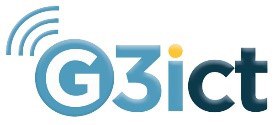Launching our Inclusive Smart City Tools in Hebrew!
Posted on April 30, 2018

Vice President, Global Strategy and Development, G3ict
We live in an increasingly digital and urban world. Unfortunately, it is not yet an increasingly inclusive world for persons with disabilities and older persons. We want to fix that. The Global Initiative for Inclusive ICTs (G3ict) and World Enabled have partnered with Access Israel to fix that. Yesterday, at the 6th annual Access Israel International Conference, we made available in Hebrew our Smart Cities for All Digital Inclusion Toolkit. We expect these tools will help cities across Israel ensure that their digital services and Smart City programs are available to all citizens.
We created the toolkit because we are seeing some trends that, when taken together, are concerning:
- Cities are our future. The world is rapidly urbanizing. The percent of people living in cities worldwide will grow from 50% today to 70% by 2025.
- Technology is advancing into all aspects of our lives. By 2020 there will be more than 50 billion devices connected to the internet. That is up from up from just 200 million in 2000. This is not just computers and mobile phones, but also homes, cars, watches, refrigerators, and many other devices.
- Cities are turning to technology more and more to make their services and activities more efficient and effective. They are becoming smarter. Recent analysis shows that the market for Smart City technology will exceed $2 trillion by 2025.
- Yet we know that the 1 billion persons with disabilities worldwide do not enjoy equal access to these great technology advancements. In most countries, people with disabilities have significantly less access to broadband and mobile technology than the population as a whole. In addition, G3ict analysis shows that in just 40% of countries are government websites accessible to persons with disabilities. In just 18% of countries are the top 10 commercial and media websites accessible.
- Today, Smart Cities are making this digital divide for persons with disabilities worse not better. Our Smart Cities for All global initiative surveyed more than 250 experts worldwide and found that just 44% of them know of a Smart City with a focus on ICT accessibility. 60% of the experts say Smart Cities are failing persons with disabilities
To fix this problem, G3ict and World Enabled created a set of tools for cities. We think these tools make great sense for Israel, a global technology hub and a country with a record of commitment to the rights and inclusion of persons with disabilities.
The toolkit contains resources to help Smart Cities worldwide include a focus on information and communications technology (ICT) accessibility and digital inclusion of persons with disabilities and older persons. It supports a range of organizations and roles related to Smart Cities, including program managers, policy makers, Chief Information Officers (CIOs), IT professionals, academics, procurement officials, accessibility experts, technology suppliers to Smart Cities, developers who design Smart City apps and solutions, and disability organizations and advocates. The four tools now available in Hebrew (and nine other languages) are:
1. Smart Cities for All: Guide to Implementing Priority ICT Accessibility Standards
Accessible ICT standards are key to designing a more inclusive approach to Smart Cities. This guide provides an inventory of three key standards that define ICT accessibility criteria and presents a step-by-step checklist of impactful actions that leaders can take to ensure their city is aware of these standards and using them effectively.
2. Smart Cities for All: Guide to Adopting an ICT Accessibility Procurement Policy
Smart Cities worldwide are uniquely positioned to use their considerable purchasing power, including of ICTs, to advance the rights and digital inclusion of persons with disabilities and older persons. This guide helps cities adopt a policy that requires any ICT purchases be accessible to persons with disabilities and older persons. The guide showcases a model procurement policy and provides a step-by-step checklist for adopting it.
3. Smart Cities for All: Communicating the Case for Stronger Commitment to Digital Inclusion in Cities
One of the biggest challenges to creating more inclusive smart cities is raising awareness of disability and ICT accessibility. This tool is designed to help effectively communicate the advantages of incorporating ICT accessibility into a city’s digital services. It provides the business, human rights, and technical arguments for stronger commitment to digital inclusion of persons with disabilities and can be used to help socialize the idea that a Smart City must also be an accessible city with a variety of stakeholders.
4. Smart Cities for All: Database of Solutions (Alpha version)
Smart cities that incorporate ICT accessibility into their programs and solutions can deliver enormous benefits for citizens with disabilities, older citizens, and the population as whole. This tool is being designed to showcase existing products and solutions that can be deployed by Smart Cities to positively impact citizens in critical areas, such as independent living, public safety, transportation, employment, and online public services, etc. The database is being launched in Alpha version, including a proof of concept note, roadmap for testing, examples of the more than 350 solutions currently in the DB, and a call to action to continue growing the database as we move it to beta version.
To download the toolkit, visit www.smartcities4all.org
Content retrieved from: https://medium.com/smart-cities-for-all/launching-our-inclusive-smart-city-tools-in-hebrew-4ec0bad6a3f6.




























